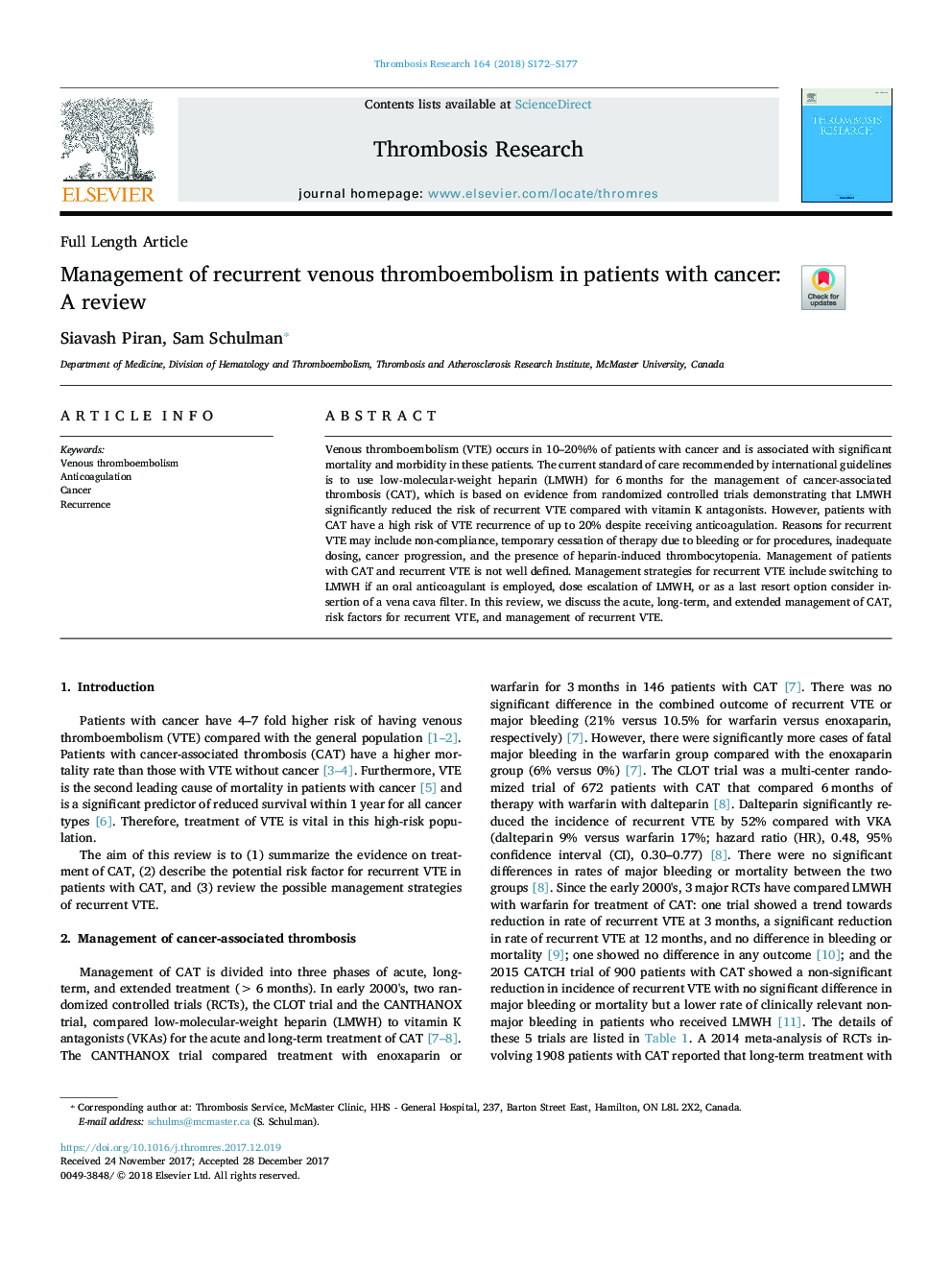| Article ID | Journal | Published Year | Pages | File Type |
|---|---|---|---|---|
| 8679502 | Thrombosis Research | 2018 | 6 Pages |
Abstract
Venous thromboembolism (VTE) occurs in 10-20%% of patients with cancer and is associated with significant mortality and morbidity in these patients. The current standard of care recommended by international guidelines is to use low-molecular-weight heparin (LMWH) for 6Â months for the management of cancer-associated thrombosis (CAT), which is based on evidence from randomized controlled trials demonstrating that LMWH significantly reduced the risk of recurrent VTE compared with vitamin K antagonists. However, patients with CAT have a high risk of VTE recurrence of up to 20% despite receiving anticoagulation. Reasons for recurrent VTE may include non-compliance, temporary cessation of therapy due to bleeding or for procedures, inadequate dosing, cancer progression, and the presence of heparin-induced thrombocytopenia. Management of patients with CAT and recurrent VTE is not well defined. Management strategies for recurrent VTE include switching to LMWH if an oral anticoagulant is employed, dose escalation of LMWH, or as a last resort option consider insertion of a vena cava filter. In this review, we discuss the acute, long-term, and extended management of CAT, risk factors for recurrent VTE, and management of recurrent VTE.
Related Topics
Health Sciences
Medicine and Dentistry
Cardiology and Cardiovascular Medicine
Authors
Siavash Piran, Sam Schulman,
